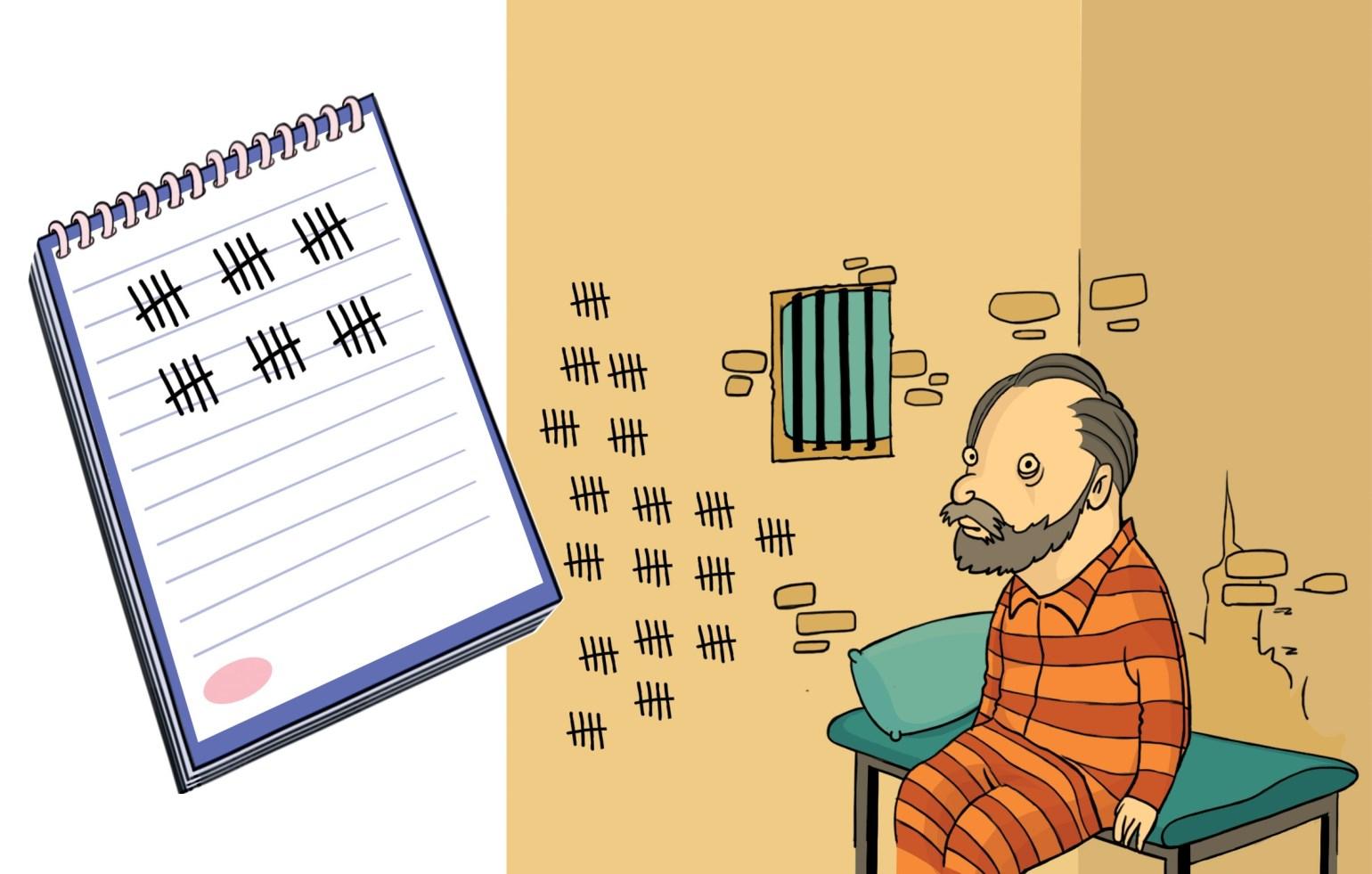
9 minute read
Sussex Pathways charity profile
26 Charity Profile
46% of adults are reconvicted within one year of their release from prison. For those serving sentences of less than 12 months, this increases to 58%. When considering why individuals reoffend in Sussex, factors including lack of housing, reduced employment and increased risk of homelessness play a significant role in the reason why people are returning to crime after their release. Furthermore, with a January inspection placing East Sussex’s largest prison, HMP Lewes under “special measures” for prisoner violence, extreme drug abuse and increased self-harm, the unstable reality many offenders in Sussex face, both during and after their sentence, holds an uncertain future. Help to resettle For over a decade, Lewes-based charity Sussex Pathways has worked tirelessly to tackle the negative reality for many people leaving prison. Their volunteers support ex-offenders both before and after release, helping them to make positive life choices, and to resettle into the local community. Sussex Pathways achieve this through the provision of their Volunteer Key Worker services for prison leavers, as well as rehabilitation support within prisons and a restorative justice service that works pre and post-release with perpetrators and victims of crime. Sussex Pathways Supporting ex-offenders to build successful futures in Sussex. By Georgia Brown
Advertisement

Shirl Tanner, CEO at Sussex Pathways explains that it is often harder for offenders to leave prison than it is to enter prison. “Consider this, someone facing prison with a drug or alcohol addiction has the opportunity to get clean during their sentence, gain self respect and mutual respect from their peers and the Officers. Yet, when they leave prison, they have nothing to return to but the lifestyle they once had. They quickly slip into old habits, return to sleeping under the Pier, continue lacking support from others.” A Sussex Pathways Volunteer Key Worker can make the difference to an exoffender’s life by giving them an alternative narrative to focus on. Shirl says having support from a volunteer can determine the difference between an exoffender relapsing on drugs, alcohol and crime as soon as they have been released, or never going back to drugs and homelessness again. Sussex Pathways volunteers work with those in prison for up to six weeks before their release date to ensure they have support in getting accommodation and attending prerelease appointments to steer them in the right direction towards independence. Support in prison Sussex Pathways also run courses in prison, focusing on life skills and mindfulness, giving prisoners the tools to understand how they can take responsibility for their actions. The volunteers help prisoners to recognise what skills they may be lacking and how they can develop these before being released back
through the door


27
28 Charity Profile
into the community. The volunteers also create a safe space within the prisons where offenders can go to discuss their concerns about facing life when released back into the community. All this contributes to reducing reoffending and creating safer communities in the local area. No government funding Shirl continues, “We take referrals on a daily basis, we have leaflets and posters around the prison, staff wear t-shirts stating they are from Sussex Pathways - we always make ourselves approachable to prisoners, and work alongside other agencies in the prison to increase the support. If anyone needs our help, all they need to do is reach out.” According to Shirl, Sussex Pathways is only a small charity that relies entirely on funding and donations as they have no support from the government. Shirl says, “funding helps to pay for everything from the courses we have to offer, to core costs, to staffing. Without funding, Sussex Pathways simply wouldn't exist.” Success stories Lucy Edwards, Project Manager at Sussex Pathways reflects on a time an ex-prisoner benefited from the services the charity has to offer. The letter ‘D’ will be used to protect the individual’s identity. “D was due to be released from HMP Lewes with no fixed abode, despite having a mental health diagnosis and having received no housing support whilst in custody” Lucy said. Before his release, D engaged with a Sussex Pathways mentor who helped him arrange a meeting with the housing officer based in the prison, in an attempt to secure accommodation ready for his release. Lucy continued, “on D’s release day, a mentor from our charity met him at the gate and attended the Council to present as homeless.” From the moment he was released, a Sussex Pathways volunteer supported D in his journey towards securing permanent housing. This is part of the charity’s ‘Through the Gate’ Volunteer Key Worker scheme, where volunteers are trained to work alongside individuals leading up to release from prison. Volunteer Key Workers will begin supporting people in prison approximately 6 weeks pre-release and will meet with them at the gate on the day of release and continue to provide weekly support in the community for up to six months. Lucy continues, “However, despite D having acquired medical information pre-release stating the medication he takes to treat his mental health diagnosis and a letter from the prison’s healthcare department, he was told that he did not possess enough evidence to place him in priority housing.” D had been successful in securing a fund to finance some B&B accommodation, which he and his mentor used in an attempt to secure some temporary accommodation instead. However, D had not yet received his necessary identification documents that he had applied for, meaning he was unable to book a bed in temporary accommodation. Lucy recalls D becoming

increasingly frustrated, “he even began to speak of committing another offence in order to go back to prison, as at least he would have somewhere to sleep if he did so.” Eventually, with support from his Sussex Pathways Volunteer Key Worker, D was placed in temporary accommodation. However, leaving prison had an increasingly negative effect on his mental health. D became paranoid and felt unsafe in his own accommodation. Lucy said, “after this incident, D fled Brighton as he did not feel safe and went to London, yet he continued to have telephone contact with his Sussex Pathways mentor, where she was able to form links


through the door

29
30 Charity Profile
with the local Salvation Army in an act of continued support. Although D was very unwell, he continued to make contact with his mentor requesting help and guidance. D was visited in hospital and the mentor liaised with hospital staff and attended a review meeting that took place. D was displaying very paranoid thoughts and would not trust any hospital staff, eat the food or allow them to attempt to support him.” Most importantly, Sussex Pathways did not give up on D. His mentor took forward actions that needed to be resolved, including helping to set up his bank account and organising his benefit payments, by talking with a money advice service and providing necessary information to the hospital and D on this matter. Lucy said, “D remains in hospital; however, his mental health is improving and he is beginning to engage with staff there. Sussex Pathways aims to support D again in the community once he is discharged.” The Volunteer Programme & Restorative Justice Sussex Pathways prides itself on its volunteers, who run the charity completely independently without any government support. They train and support the volunteers to achieve the effective resettlement into the community for people leaving prison and directly provide a range of services, as well as mobilising the support of partner organisations. The Volunteer Key Worker programme promotes progression towards education, training and employment. It supports the development of life skills such

as improving personal relationships and interpersonal and communication skills as well as helping to integrate into the community. Furthermore, Sussex Pathways run a unique “Restorative Pathways” programme, which provides a volunteer-based Restorative Justice service; enabling victims to tell offenders about the real impact of their crime and to get answers to questions. Restorative Justice also offers the offender an opportunity to understand the impact and to say ‘sorry’, hoping to make amends with those who have been affected. This is an incredibly moving and empowering opportunity for all parties involved and is managed in a safe and structured environment. If you would like to support Sussex Pathways and their extensive efforts to secure a positive future for ex-prisoners and their communities, please donate at www.sussexpathways.org.uk/make-a-donation


Though the new regulations, standards and inspections seem endless, the ethos at Woodlands has not changed here in twenty five years either, “Treat each resident as if they are your own parent”. Not difficult to understand, though challenging at times. The staff, all highly qualified and very experienced in the field of Dementia Care, take enormous pride in their team with the results of a “GOOD” in all five categories of the CQC Inspection Report. However, the greatest reward is daily… seeing residents content, secure and comfortable and feeling at home without social pressures. Being a small home, only fourteen residents, most residents get on together well. There is always a quiet corner if someone feels a little Me-time is in order! Woodlands House is a care home for elderly people with short term memory, dementia confusion, and Alzheimer’s disease. The families of residents at Woodlands have recognised, that whilst becoming less able to live independently, even with home-care, their remaining skills and abilities can be more successfully maintained given specialist care earlier, rather than later. The environment which is comfortable and homely with all soft furnishings, gives the warmth and understanding normally associated with family care. It is also borne in mind how families feel when first leaving and later visiting loved ones. It is important they feel comfortable and confident in the care being provided. Activities, passive and active are encouraged throughout the day by trained care staff. The importance of recognising, nurturing and encouraging the residents remaining skills and ability to communicate is of paramount importance to the quality of care given at Woodlands House. Christmas is coming, and like everyone else we will be preparing homemade mince pies, Christmas Cake and loads of shortbread! Decorations will cheer us up as we look out at the birds and squirrels scurrying around for their supper while residents patiently wait for the warm aromas of baking indicating supper and Christmas are on their way! Another year at Woodlands! Oonagh Manager/Proprietor: house.woodlands@gmail.com 01903725458 or 07815762623 ROOM AVAILABLE NOW!
through the door











